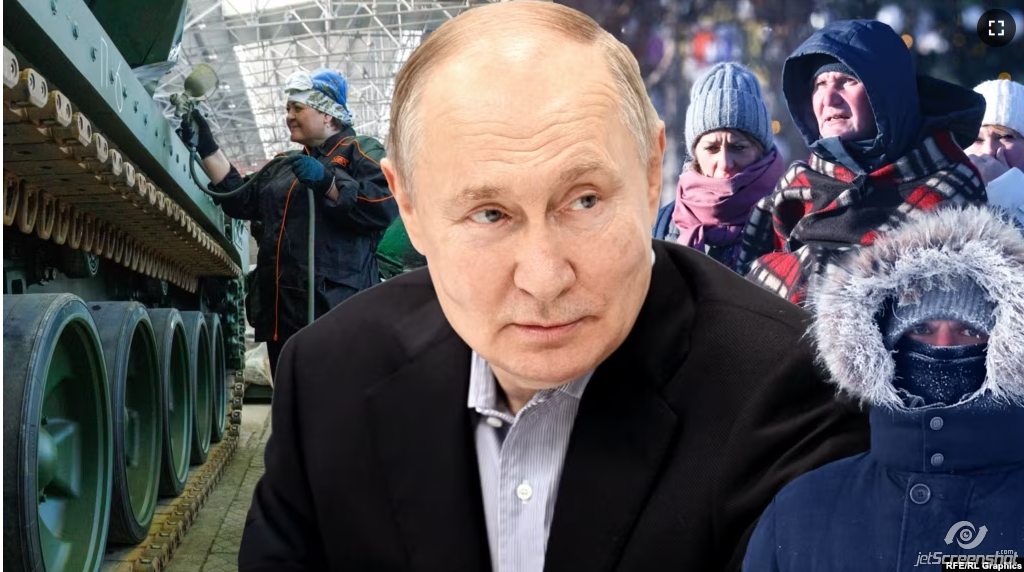By Kseniya Kirillova, for Jamestown Foundation
Executive Summary:
- The recent “almost naked” party of Russian celebrities has led to a new wave of government repression and widespread public discontent.
- Moscow’s media campaign against the partiers aimed to strengthen support for the war in Ukraine and demonstrate “solidarity with the people” by exploiting public resentment for the wealthy.
- The Kremlin continues to promote imaginary victories, leaving the Putin regime vulnerable as its propaganda increasingly diverges from reality.
On the evening of December 21, 2023, the popular blogger Anastasia Ivleyeva organized a closed “almost naked” party. She invited various stars of Russian show business, including some who publicly support the war. Photographs from the party found their way online, depicting these celebrities’ “too revealing” outfits. The attendees faced widespread backlash from the Russian public and government. After the photographs were published, a groundswell of social activists, including “members of the special military operation (SVO),” recorded angry messages about how celebrities are “corrupting youth” while “Russian soldiers are losing their lives” in Ukraine (Lenta.ru, December 28, 2023). The end of 2023 marked a new “wake-up call” for the Russian elites loyal to the Kremlin. Overall, the Russian government gives off the illusion that it is trying to react appropriately to the popular demands of Russians through propaganda. In reaility, it has been unable to solve any of the country’s real problems.
Moscow used this scandal to hit the party’s participants and organizers with a new wave of repression. The Russian authorities initiated police searches and tax audits against the partiers, and despite public apologies, many of the participants have been blacklisted from television. Meanwhile, “offended citizens” filed a number of civil suits against Ivleyeva (Lenta.ru, December 28, 2023). Mainstream Russian media published a complete list of the party attendees (Izvestia, December 28, 2023). Finally, the Lefortovo District Court of Moscow termed the event “propaganda of non-traditional sexual relations” and called for appropriate legal action to be taken (Lenta.ru, December 27, 2023).
The harsh reaction of government officials and propagandists reveals that the media campaign to brand these “offending” celebrities in a negative light had the Kremlin’s backing. Moscow’s main goals with this approach were to force popular entertainers to demonstrate their support for the war against Ukraine and their “solidarity with the people,” as well as highlight a certain popular demand for continuing the war effort. Even before the full-scale invasion, Russian state media did not conceal the fact that most Russians, mired in poverty and hopelessness, hold contempt toward the rich and famous (Gazeta.ru, Marcy 7, 2019). Special hostility has been directed toward the stars who openly boast about their luxuries (Rambler.ru, November 16, 2020).
Given such sentiments, most Russians viewed Ivleyeva’s party as a demonstration of contempt for the “common people.” Thus, the public contempt for the rich who are “devoid of shame” coincided with the approval of the offended. For their part, Russian officials demonstrated that they, in the words of propagandist Margarita Simonyan, “listen to the people” (Gazeta.ru, December 31, 2023).
Moscow’s approach also provides an indirect means for strengthening popular support for the war. In some ways, the SVO has served as a catalyst for rapprochement between the Kremlin and the Russian people. In 2022, one of the main propaganda narratives was the idea that “purifying Russian society” was the core goal of the war in Ukraine (see EDM, November 28, 2022). The fight against the “debauchers who insulted the people” was another vivid demonstration of such a purification—that is, evidence of a “victory on the home front.”
Russian officials and propagandists term the expansion of BRICS (originally a loose grouping of Brazil, Russia, India, China, and South Africa) as another gain from the war and a “victory for Russia.” In particular, Sergei Mironov, head of the political party “A Just Russia,” stated that “the SVO played a key role in launching the process of BRICS expansion” (Мironov-online.ru, August 24, 2023). In reality, the expansion of BRICS has happened more organically and would be more accurately characterized as a geopolitical success for China. Russia has received much less from its involvement in BRICS than it initially expected (see EDM, December 5, 2023).
Another imaginary victory concocted by Moscow has been the severance of economic relations with the West. According to Russian propagandists, this was necessary for Russia to create its own economic model. Other pro-Kremlin analysts claim this new reality guarantees successful development for Russia’s new technological cycle (YouTube.ru, December 20, 2023).
The imaginary victories cited here feign the illusion of a re-creation of the Soviet Union in Russia. Qualities such as Russians’ characteristic “class hatred” for the rich, the postulate of dividing the world into two blocs, the “decaying” West and the non-Western world consolidating against Moscow, and belief in the success of a non-market economic model contribute to the Soviet illusion. This makes many Russian citizens increasingly nostalgic for the Soviet Union (Forbes.ru, May 17, 2023).
This Soviet illusion creates a new vulnerability for Russian propaganda. Before, the main narrative of Kremlin propagandists was the preservation of “stability.” Russians were intimidated by the chaos and civil war that was predicted would inevitably break out after Vladimir Putin’s death (Newsland.com, February 23, 2019). Today, ideas of a “bright future” and a “new world,” in which a strong and economically developed Russia will play a central role, are emerging. These new concepts look to exacerbate the vulnerability that the contradictions in Moscow’s propaganda with reality will soon come to light. Regardless of how much propagandists try to deflect attention to imaginary problems and accomplishments, the Putin regime is incapable of satisfying the Russian people’s most basic needs, primarily in the fields of security and economics. If the Kremlin fails to provide tangible results, the population may soon act on their frustrations.
By Kseniya Kirillova, for Jamestown Foundation





